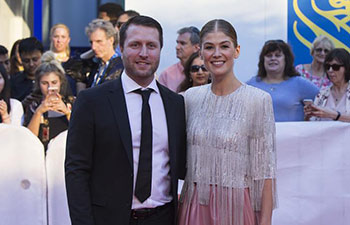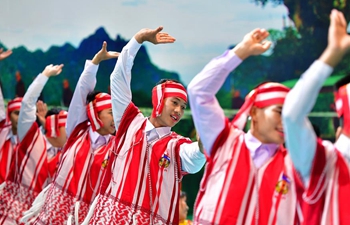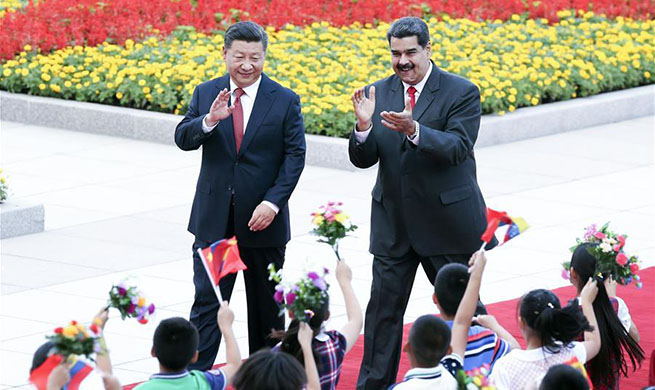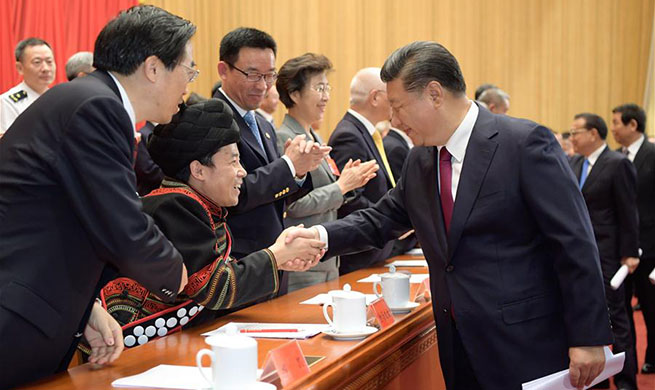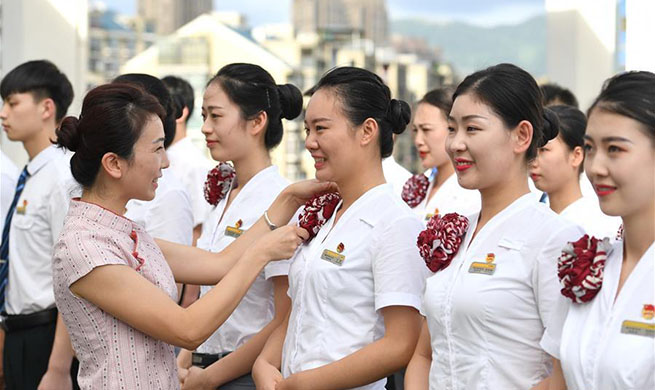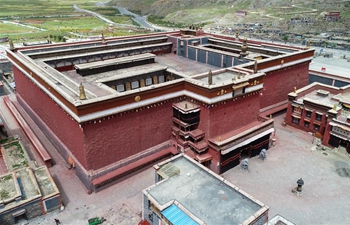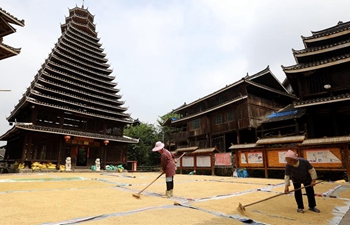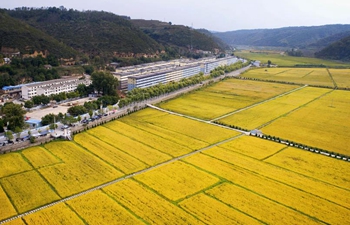BAGHDAD, Sept. 15 (Xinhua) -- The Iraqi lawmakers on Saturday elected Mohammed al-Halbousi as a parliament speaker, taking a crucial step in forming the government in the next four years.
The newly-elected Iraqi parliament resumed its session around noon under the chairmanship of Mohammed Zayni, the eldest member of the parliament. The session was held with the attendance of 298 lawmakers out of 329-seat parliament.
Halbousi, the former governor of Anbar province, gained with 169 votes and won the post of parliament speaker, while his competitor, the former defense minister Khalid al-Obeidi, got 89 votes.
Other Sunni competitors, the former speaker Osama al-Nujaifi and Mohammed al-Khalidi, garnered lower numbers of votes.
On Friday, the Sunni parliamentary bloc National Axis Coalition nominated Halbousi as speaker in Iraq's next parliament.
"We declare to the Iraqi people and our partners of the political blocs our nomination to engineer Mohammed Reikan al-Halbousi as our candidate to be a speaker as we are the bloc that have the biggest number of members in parliament," Ahmed al-Jubouri, from the Sunni coalition, said in a statement at a press conference in Baghdad.
According to the Iraqi Constitution, the Council of Representatives (parliament) must elect its speaker, then his first deputy and second deputy, by an absolute majority of the total number of the lawmakers by direct secret ballot.
The parliament continued its session to vote for the first and second deputies. According to Iraq's power-sharing system, the two deputies must be the first from Shiite community and the second from the Kurds.
If the candidates for the remaining deputy posts failed to gain the absolute majority of 365 votes, another round of direct secret ballot which only entails the winner to garner the largest number of votes among the competing candidates.
Later, the parliament shall elect the president from among the candidates by a two-thirds majority of its members, and according to the same power-sharing system, the president should be for the Kurds, the speaker for the Sunnis and the prime minister for the Shiites.
The political blocs in parliament have yet to end their tough negotiations over forming the largest alliance to establish the government for the next four years.
Both the Alliance Toward Reforms, backed by Shiite cleric Moqtada al-Sadr and Prime Minister Haider al-Abadi, and the Conquest Alliance, headed by paramilitary Hashd Shaabi leader Hadi al-Ameri and Nuri al-Maliki, claim to be the largest alliance in parliament.
According to the Iraqi Constitution, after electing speaker and two deputies, the parliament should elect a president of the country who will ask the largest alliance to form a government within 30 days.





